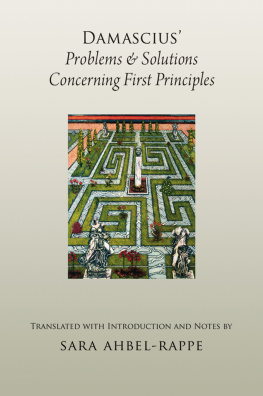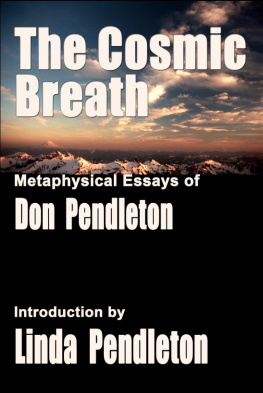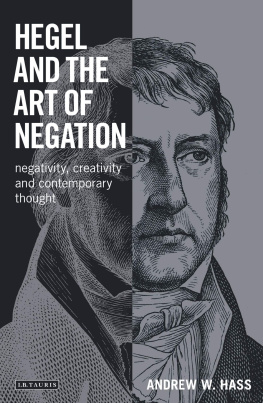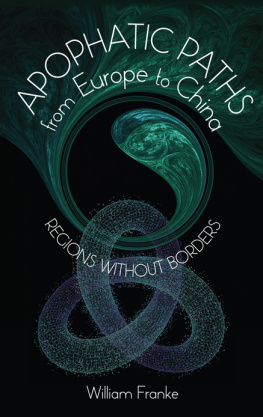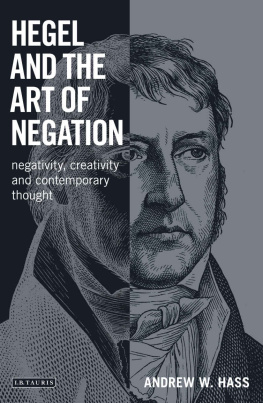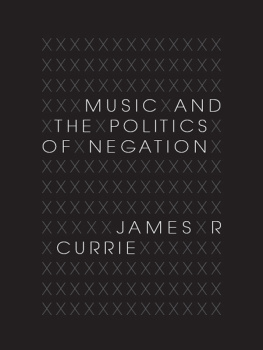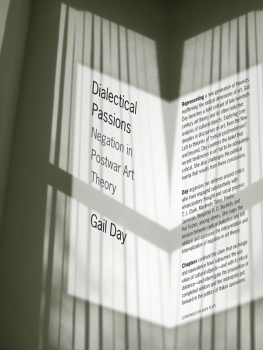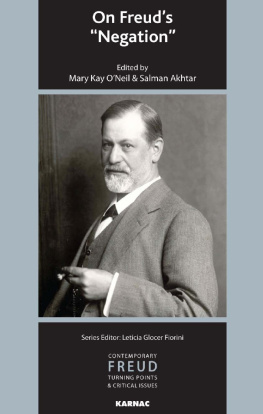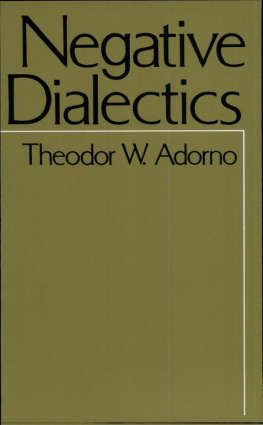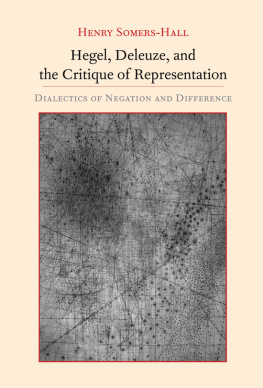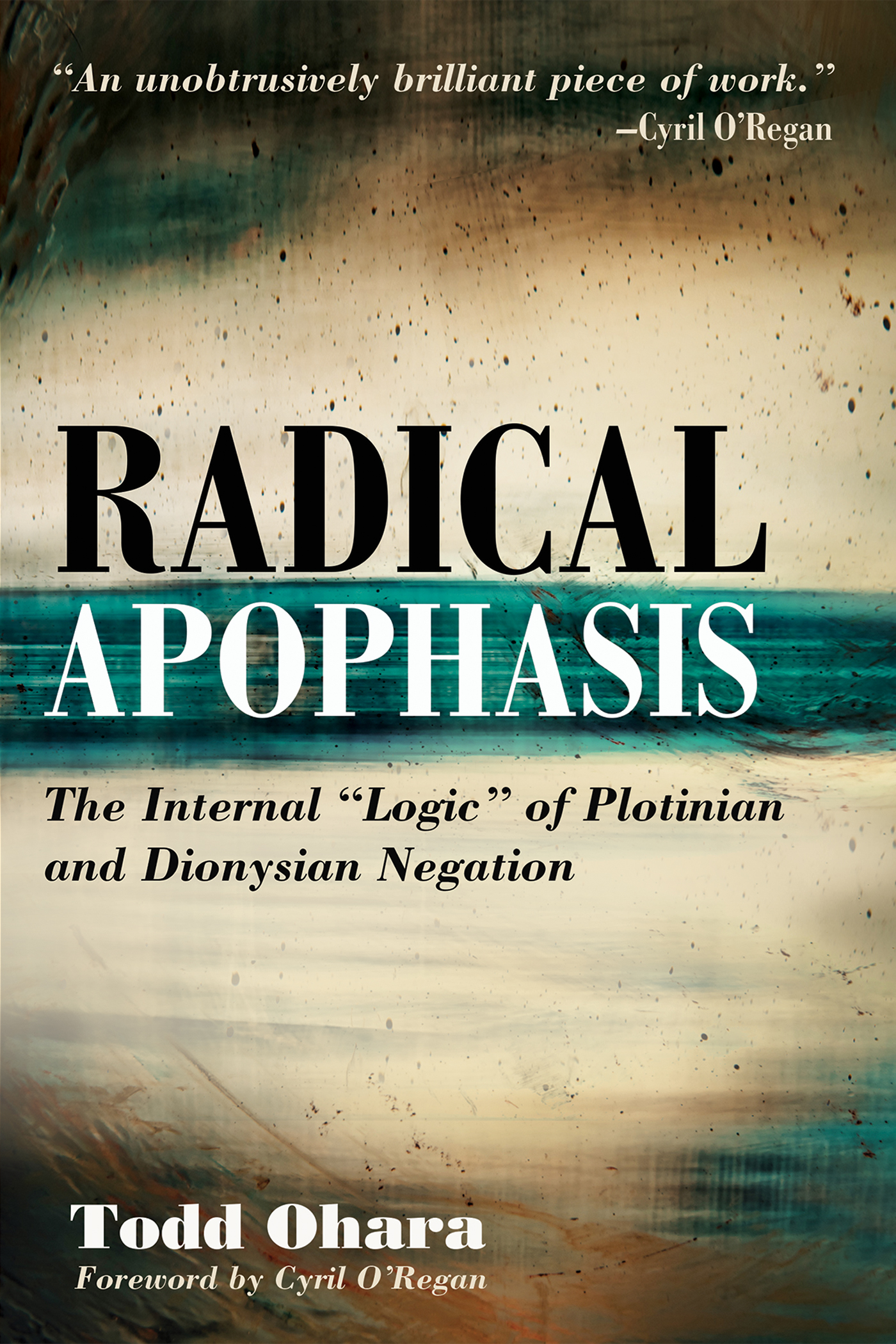Foreword
T his book by Todd Ohara is an unobtrusively brilliant piece of work. While the book seems to be narrowly focused on negative predication in the works of Plotinus and Pseudo-Dionysius, I submit that this is not so for a number of reasons. First, and most obviously, these two figures are not just any two figures; they have played a vitally important role in Western thought when it comes to the problematic of whether and how we can name the ultimate and how this bears on our actual relationship to the really real which essentially escapes predication, whether negative or positive. Crucially, these figures articulate decisively different ways in which negative language or the language of unsaying functions. The former is significantly the more radical in that the ultimate referred to hyperbolically and intended in negative statement fundamentally transcends the relative order whose existence is the raison detre of the talk of ultimate reality in the first case. The latter is decidedly less radical in that negative predication is firmly anchored in affirmations about the divine even as these affirmations are unsaid and relativized. Second, it is not only that we are talking about two hugely important examples of unsaying in the Western philosophical and theological traditions, we really are talking about figures who provide us with paradigmatic instances of different grammars of unsaying. These grammars Ohara is convinced, are liberally illustrated throughout the later philosophical and theological traditions, and provide us with criteria whereby we can ask the difficult question of whether particular apophatic forms of theology we are interested in are non-radical or radical or, in Oharas figural way of proceeding, whether they illustrate a Plotinian or a Dionysian grammar of unsaying. The application procedure looks as if it would be especially helpful in sorting out such difficult cases in the Western tradition as Johannes Scotus Eriugena, Meister Eckhart, Marguerite Porete, and Nicholas of Cusa, who seem, at the very least, to stretch the Dionysian (and also Augustinian) grammar of divine naming.
As I see it, in addition to offering illuminating readings of the texts of Plotinus and Pseudo-Dionysius, this book makes three major interventions in contemporary philosophy and theology interested in strategies to chasten expectations with regard to our ability to name the ultimate. First, and most obviously, it introduces a new voice in the ongoing attempt by analytic philosophy to address divine naming. One can think here of Michael Raes recent Gifford Lectures on the hiddenness of God, but perhaps also earlier attempts by Denys Turner to tease out strategies of unsaying that are necessary in the naming of God by looking at such major historical figures such as Pseudo-Dionysius, Bonaventure, and Meister Eckhart. One way of thinking of Oharas work is that it represents a third way in analytic philosophy and theology in that while the historical interest is genuine, as is the case in Turner, the analytic tools are sharper and considerably more to the fore. Conversely, however, in contrast to Rea, Ohara does not so much apply ready-made analytic tools to the texts of Plotinus and Pseudo-Dionysius, so much as generate them in his very reading of the texts of these significant historical figures. Oharas method remains resolutely hermeneutic, even as it is committed to fine-grained conceptual analysis of various forms of negation in both his authors.
Second, and relatedly, Ohara makes a contribution to our understanding of Christian mysticism with respect to which negative naming has been associated and explicitly defended in the tradition of mystical theology. If we are talking about two different paradigms or even grammars of how to operationalize and understand negation, Ohara is anxious to underscore that the purpose of this is participation in the divine that has been freed by means of language of the very constraints language put on the divine and especially on the divines appearing. Ohara believes that all naming of the divine in the mystical theology tradition, however negative, intends a transcendental signified. In contrast to Derrida, however, the language of negation in either of its two basic forms relentlessly tends towards a referent that it cannot command, but with which it achieves contact. Here Ohara remains on the essentially realist side of the conversation in mystical theology represented perhaps best by Turner and McGinn. From Oharas point of view, neither Plotinus nor Pseudo-Dionysius, nor any of their successors in negative theology, confuse apophaticism with agnosticism, or allow skepticism into an unsaying regarded as genuinely ecstatic and fulfilled when in unsaying or silence contact is made with the divine at the deepest and highest of levels. The goal of unsaying is an experience of the divine and participation in the divine, even if this experience has features that will resist being translated into language and concept, and to avail of a trope of Maximus the Confessor to which Ohara does not recur, in the most extraordinary of paradoxes the mystic comes to participate in the inparticipatable ground of all physical and spiritual reality.
A third intervention is far more latent. Ohara has deep training in continental philosophy and is particularly adept in contemporary discussions about the nature and limit of phenomenology, and expert in the debate between Marion and Derrida on the radicality of naming. While none of this is to the fore in the present book, behind the screen one sees Ohara agreeing with Derrida concerning the difference between negative theology and deconstruction and with Marion concerning the inadvisability of postmodern forms of thought of moving beyond the stance proper to all negative theology, whether in its less or more radical forms. In his analysis of the paradigmatic negative theology discourses of Plotinus and Pseudo-Dionysius Ohara effectively admits that they are, indeed, hyperousiological, not only lexically, but substantively, as Derrida says they are. For Ohara, however, this is a compliment rather than an insult. He sides with Marion in celebrating the hyperboles of the Western philosophical and theological tradition as shattering language against a givenness that cannot be contained, and that it is just this feature of subversion by too much that suggests its superiority over the self-referentiality of language and deferral of meaning championed by Derrida and his epigones. Against Marion, however, and more in league with the thought of the revisionist metaphysician William Desmond in his God and the Between ( 2008 ) Ohara is not at all shy about the metaphysical register of the language of negative naming, which finds its ground in the provocation in a reality that is superabundant and excessive.
That this book manages in a very subtle way to do all of the above is not to deny that it is primarily an interpretation of Plotinus and Pseudo-Dionysius. At the outset it should be said that this book is not in the strict sense a historical study. Ohara does not track down Plotinuss Platonic, Middle Platonic, and Stoic sources as might be the case with a scholar such as John Rist. Nor does he track down the philosophical sources of Pseudo-Dionysius as Stephen Gersh does so incomparably, nor the theological (Syrian) sources as Alexander Golitzin does so well. His is primarily a conceptual treatment, even when he attempts to define the relation between a later (Pseudo-Dionysius) and an earlier (Proclus) thinker. Convinced with regard to their massive influence, and persuaded that they still have something to say to contemporary philosophers and theologians caught up with the issue of naming the ultimate, Ohara wishes to lay bare the internal logic of both, or what I have referred to already as grammar. Now if the method adopted might in general be called conceptual analysis, I would want to record that the analytic mode falls within that of ordinary language. In my view Ohara operates with as pleasing an analytic philosophical style as can be imagined, and shows what can be delivered when used with subtlety. The method does not bring attention to itself; there is nothing in it that smacks of mere cleverness.


